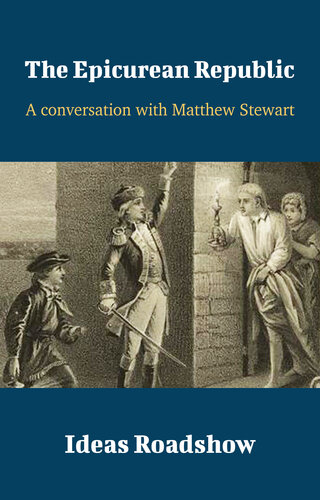

Most ebook files are in PDF format, so you can easily read them using various software such as Foxit Reader or directly on the Google Chrome browser.
Some ebook files are released by publishers in other formats such as .awz, .mobi, .epub, .fb2, etc. You may need to install specific software to read these formats on mobile/PC, such as Calibre.
Please read the tutorial at this link: https://ebookbell.com/faq
We offer FREE conversion to the popular formats you request; however, this may take some time. Therefore, right after payment, please email us, and we will try to provide the service as quickly as possible.
For some exceptional file formats or broken links (if any), please refrain from opening any disputes. Instead, email us first, and we will try to assist within a maximum of 6 hours.
EbookBell Team

4.4
52 reviewsThis book is based on an in-depth conversation between Howard Burton and award-winning author and independent scholar Matthew Stewart. In his later years, Thomas Jefferson referred to "the revolutionary part of the [American] Revolution", which for him meant the founding ideals that would serve as a model for the world on how to build a modern state, as opposed to an incidental squabble between one country and its former colonists. This wide-ranging conversation explores how many of these ideals that Jefferson referred to are part of an intellectual thread that passes through key Enlightenment thinkers such as Spinoza and can be traced all the way back to Epicurus.
This carefully-edited book includes an introduction, The Collective Unconscious, and questions for discussion at the end of each chapter:
About Ideas Roadshow Conversations Series (100 books):
Presented in an accessible, conversational format, Ideas Roadshow books not only explore frontline academic research featuring world-leading researchers, including 3 Nobel Laureates, but also reveal the inspirations and personal journeys behind the research. Howard Burton holds a PhD in physics and an MA in philosophy, and was the Founding Director of Canada's Perimeter Institute for Theoretical Physics.